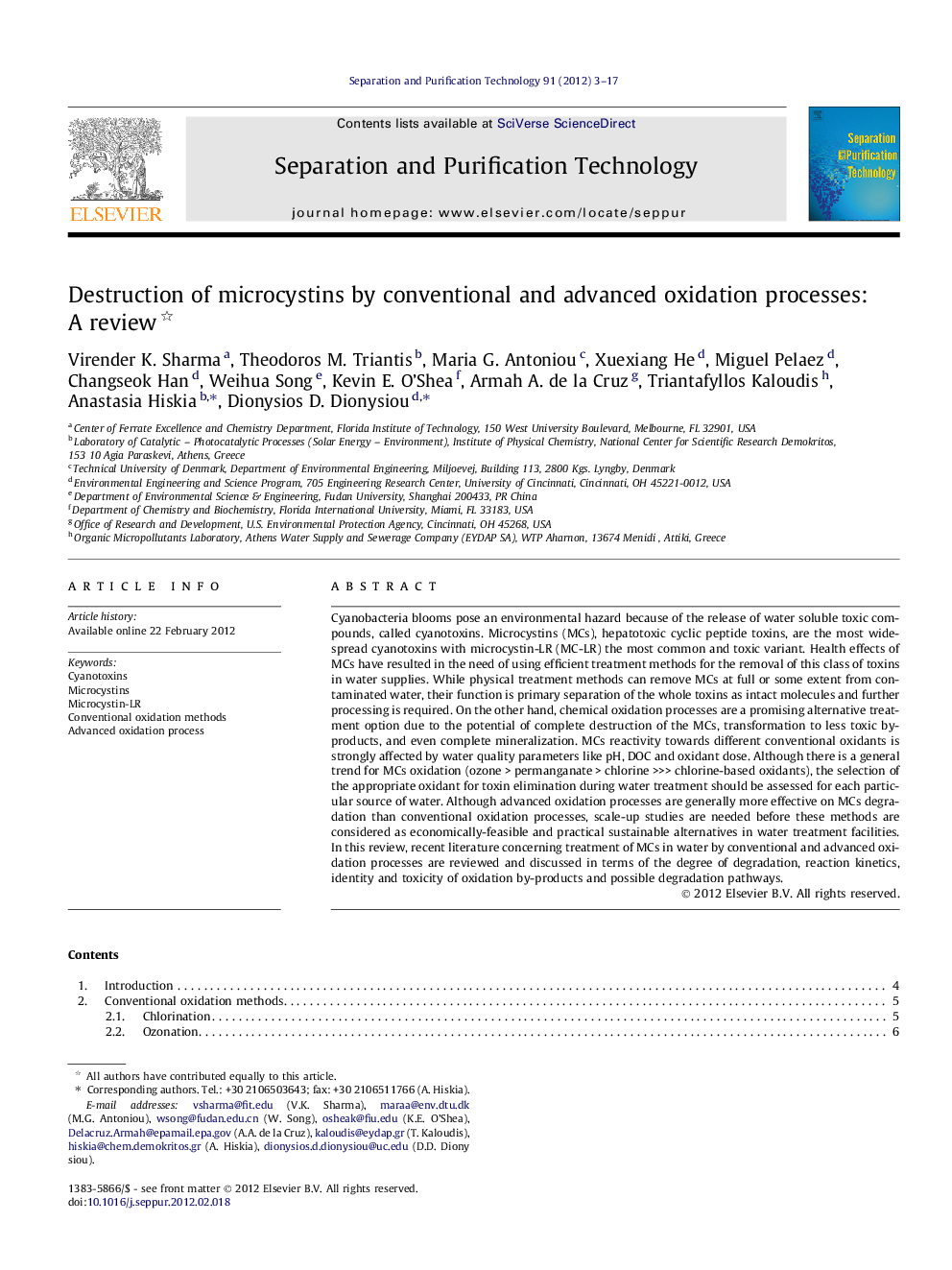| کد مقاله | کد نشریه | سال انتشار | مقاله انگلیسی | نسخه تمام متن |
|---|---|---|---|---|
| 642204 | 1457028 | 2012 | 15 صفحه PDF | دانلود رایگان |

Cyanobacteria blooms pose an environmental hazard because of the release of water soluble toxic compounds, called cyanotoxins. Microcystins (MCs), hepatotoxic cyclic peptide toxins, are the most widespread cyanotoxins with microcystin-LR (MC-LR) the most common and toxic variant. Health effects of MCs have resulted in the need of using efficient treatment methods for the removal of this class of toxins in water supplies. While physical treatment methods can remove MCs at full or some extent from contaminated water, their function is primary separation of the whole toxins as intact molecules and further processing is required. On the other hand, chemical oxidation processes are a promising alternative treatment option due to the potential of complete destruction of the MCs, transformation to less toxic by-products, and even complete mineralization. MCs reactivity towards different conventional oxidants is strongly affected by water quality parameters like pH, DOC and oxidant dose. Although there is a general trend for MCs oxidation (ozone > permanganate > chlorine >>> chlorine-based oxidants), the selection of the appropriate oxidant for toxin elimination during water treatment should be assessed for each particular source of water. Although advanced oxidation processes are generally more effective on MCs degradation than conventional oxidation processes, scale-up studies are needed before these methods are considered as economically-feasible and practical sustainable alternatives in water treatment facilities. In this review, recent literature concerning treatment of MCs in water by conventional and advanced oxidation processes are reviewed and discussed in terms of the degree of degradation, reaction kinetics, identity and toxicity of oxidation by-products and possible degradation pathways.
► Ozonation is the most effective conventional oxidation process for MCs destruction.
► AOPs are more effective on MCs degradation than conventional oxidation processes.
► Water quality parameters significantly affect the efficiency of MCs degradation.
Journal: Separation and Purification Technology - Volume 91, 3 May 2012, Pages 3–17